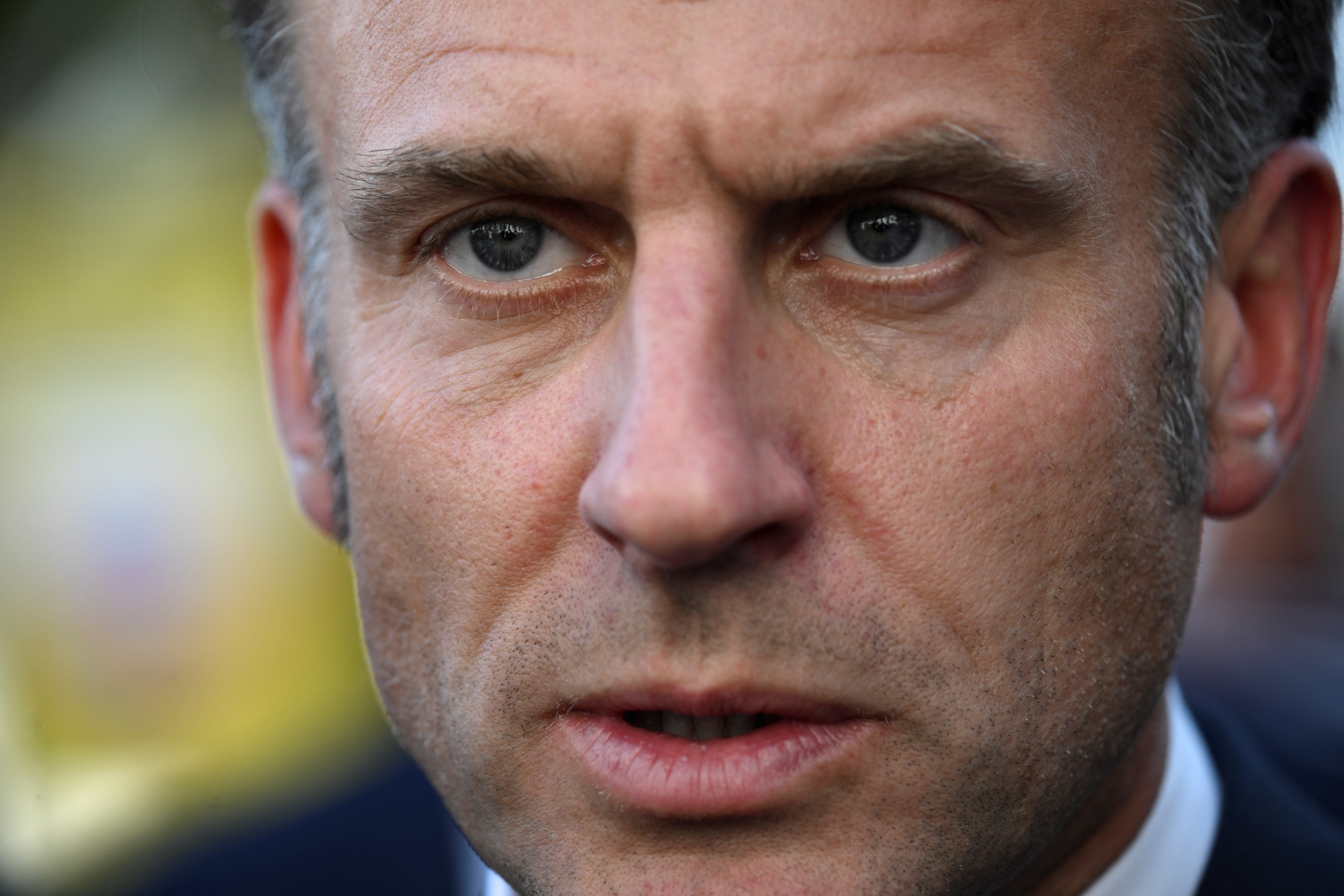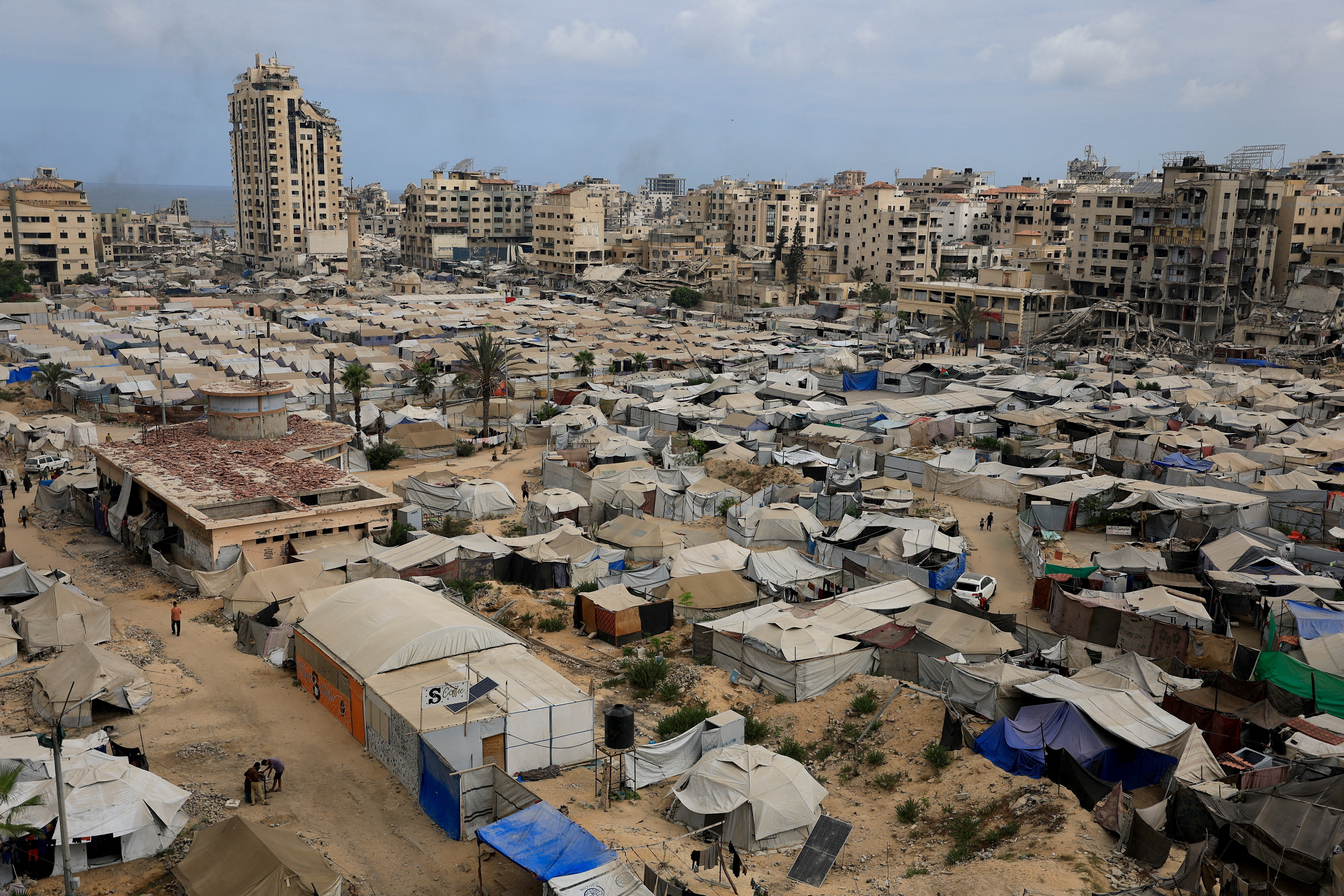Even though it is recognised as a state by 143 of the 197 states of the UN
TV pictures of starving babies dying of hunger in Gaza was too much for France, Britain and Canada. All three decided to join the 143 of the 197 member states of the UN and recognise Palestine as a state at the next gathering of the UN General Assembly in New York in September 2025.
There is global outrage at Israel for its daily destruction of Gaza by bombing and starving its people to death while moving in on the West Bank by enabling Israeli settlers to kill Palestinians and demolish their villages.
Recognition of Palestine as a state is designed to forestall the clear policy by Israel of taking over the whole of Palestine.
French president Emmanuel Macron was first to declare that France will recognise Palestine as a state this September. Britain followed shortly afterwards which suggested coordination between them.
Britain, however, set conditions that it would recognise Palestine if Israel does not agree a ceasefire, provide unimpeded access to humanitarian aid for Gaza and accept the existence in principle of a Palestinian state. Canada was next to declare its preparedness to recognise Palestine. It too set a condition, but this time on Palestine. Canada would recognise Palestine provided it returned a democratically elected government that did not involve Hamas. It goes without saying that there is not going to be recognition unless all the Israeli hostages are released.
Portugal, Germany, Italy and Australia are on the brink of joining most of the rest of the world on a recognition spree. As for the Republic of Cyprus (RoC), it would be remiss not to mention that it recognised Palestine as a state as early as 1988, shortly after Yasser Arafat declared independence.

The US is dead against recognition and is actively determined to frustrate it by refusing Palestinians visas and its tariff policy against Canada. Like Roman Emperor Nero played the fiddle while Rome burned, US President Donald Trump played golf while Palestinian babies starved to death. He could have picked up the phone and told the Israelis to stop messing around and let humanitarian aid through instead of mumbling mild disapproval of Israel.
It is useful to compare the recognition of the state of Israel in 1948 to that of the state of Palestine in 2025. Israel declared independence at the end of the British mandate in 1948 when it accepted a UN plan for two states. In hindsight perhaps the Palestinians should have accepted two states in 1948, but their displacement to make way for the establishment of the state of Israel was not acceptable at the time.
Israel was initially recognised, mostly by communist states, the Soviet Union being the first to do so officially in 1948. The US recognised it de facto at first, but Britain sat on the fence for a while until recognition followed after Israel became a member of the UN in January 1949.
The creation of states in international law is a question of fact. A state as a person in international law exists if it has a permanent population; a defined territory; a government; and capacity to enter into relations with other states. These are framework requirements that are conveniently set out in the 1933 Montevideo Convention, but they reflected norms of customary international law that were adopted in the convention rather than the other way round.
When an aspiring state objectively fulfils all four requirements it acquires international personality by operation of law. In practice, however, the capacity to enter into relations with other states is evidenced by recognition by other states and international organisations.
For states like the US, Britain and France the existence of a state is not just a matter of fact – whether an entity fulfils the convention requirements – but also whether they deem it in their interest to recognise it. In other words, it is politically possible for states not to recognise an aspiring state even if it satisfies the requirements and, vice versa, to recognise one even though it does not satisfy them.
Different considerations apply to the recognition of governments. For the most part the recognition of a government is not based on approval of a particular government but on whether it is in effective control of its territory. The best example of recognition of a state as well as a government was that of the People’s Republic of China (PRC) by the US in 1978 when it had previously recognised only the state and government of the Republic of China (Taiwan).
Palestine has a strong case for recognition because it was offered statehood by the UN as long ago as 1948 on the same basis as Israel was, which it would not have been if it did not qualify under the Montevideo requirements.
It has also been recognised as a state by 143 of the 197 states of the UN – twelve more than the two thirds required to become a full member – and is also a state party to a number of treaties including the 1998 treaty establishing the International Criminal Court (ICC).
A number of prominent lawyers in UK have warned the UK government that recognising Palestine as a state would not be in accordance with international law. Their argument is that Palestine does not have a single functioning government over a defined territory in that the government of the West Bank (Fatah) is not the same government as in Gaza (Hamas).
The requirement of a government in the Montevideo criteria is of an overarching political organisation capable of representing the self-determination of a people seeking recognition as a state rather than the government of a well-established state.
My own view is that when Palestine satisfied the Montevideo requirements in 1948, it acquired international personality objectively and nothing has happened since then legally capable of destroying its status.






Click here to change your cookie preferences